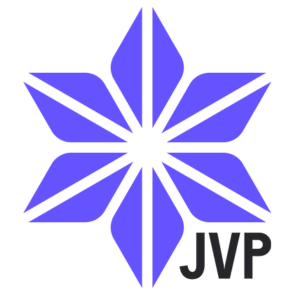Concerns over attacks on student movements in campus protests as a form of repression against human rights defenders
Since October 2023, students from universities across the United States took visible action peacefully protesting Israel’s egregious human rights violations taking place through its relentless military campaign in Gaza. Front Line Defenders is deeply concerned with the crackdown at several academic institutions, including Columbia University in New York City, the University of California, Los Angeles (UCLA), in California and Emory University in Georgia, against Students movements which has included suspensions of students, banning of organisations, evictions from university housing, and arrests of students.
Since April 2024, the student movements, have been led mainly by the human rights group Columbia University Apartheid Divest (CUAD), an umbrella coalition of over a hundred student groups at Columbia University, formed in 2016 and recently reactivated in October 2023 in response to the increasing pro-Palestine student movement. The Students for Justice in Palestine and the Jewish Voice for Peace form part of this coalition and have actively supported and participated in the peaceful protests.
The Students for Justice in Palestine (SJP) is a student human rights organisation founded in 1993 at the University of California, Berkeley, which denounces human rights violations against Palestinians and calls for their right to self determination. The SJP organisation has over two hundred chapters across universities of North America, including Columbia University from which they have led the current student movement for the rights of the Palestinian people by advocating for their demands in physical and digital spaces, addressing university authorities, the Federal Government and the international community.
The Jewish Voice for Peace (JVP) is a human rights organisation, founded in 1996 by the students of UC Berkeley, in California, who are also calling for an immediate ceasefire and denouncing the human rights violations against the Palestinian people, providing a critical perspective towards Zionism and calling Jewish people into solidarity towards Palestine self determination.
The peaceful protests primarily took place with the formation of encampments in several college campuses around the country. These movements have issued a series of specific demands for their universities authorities, and urged the international community to act for an immediate ceasefire and, in most cases, demanding that their universities divest any assets linked to Israel, break academic ties with Israeli universities and publicly condemn Israel’s human rights violations in Gaza.
As a result, a large number of universities responded by calling in police to break up these peaceful protests and student encampments on their campuses. This reportedly resulted in instances of police repression, in some cases reportedly including the use of tear gas and stunt guns and in the arrest and reported physical violence against peaceful students protestors and faculty members. The students movement, that includes human rights defenders, reported multiple threats by their universities including suspensions, restriction from taking their exams, rescinding of their campus residency, and/or having their degrees withheld. In some universities students and faculty staff have also faced attacks by Pro-Israel counter-protesters. This includes the attacks by anti-Palestine protesters during the encampment at UCLA on the early morning of 1 May, and detentions by the police force at others encampments.
Prior to the commencement of the peaceful protests the human rights organisations had experienced harassment and defamation. Numerous cases of doxxing against members of these student organisations have also been reported, with trucks displaying names, photos and personal information of members of the human rights groups, smearing them as anti-semitic and terrorists. In addition since October 2023, more than ten specific attacks towards students who address and document the situation of the Israel-Gaza conflict have been documented.
On 10 November 2023, Columbia University suspended the Columbia SJP and JVP for supposedly having “repeatedly violated University policies related to holding campus events”.
On 30 April, the United Nations High Commissioner for Human Rights expressed his concern over US “law enforcement actions across a series of universities” as they “appear disproportionate in their impacts”. The UN Special Rapporteur on Human Rights Defenders also stated on 29 April that students facing suspension if they don’t end their peaceful protests in Columbia University is “a clear violation of their right to peaceful assembly.”
The crackdown on the student movement by US university officials and authorities undermines the rights to freedom of expression and freedom of assembly of young human rights defenders engaged in such peaceful protests.
In our recently published Global Analysis 2023/24, Front Line Defenders has highlighted an increasingly concerning trend of governments failing to engage in good faith with peaceful protesters. Instead of protecting the right to protest, States around the world are moving to restrict it and criminalise those involved in organising or leading protests. According to Front Line Defenders’ 2023 data, where human rights defenders faced criminal charges, charges related to assembly or public order offences were among those most commonly used.
Front Line Defenders is extremely concerned with the recent threats, attacks and repression including the use of disproportionate force against human rights defenders participating in the protests.
Front Line Defenders urges US authorities and academic institutions:
- To respect the students movement, including human rights defenders’, rights of freedom of expression and freedom of peaceful assembly, and to to participate in public protests.
- To allow legitimate and peaceful human rights organisations to operate without suspension, harassment or reprisals.
- To refrain from the use of excessive force, including the use of armed police forces.
- To recognise the critical role of human rights defenders in this context promoting and protecting their human rights work, following international standards, and refrain from attacking and criminalising them for such work.


